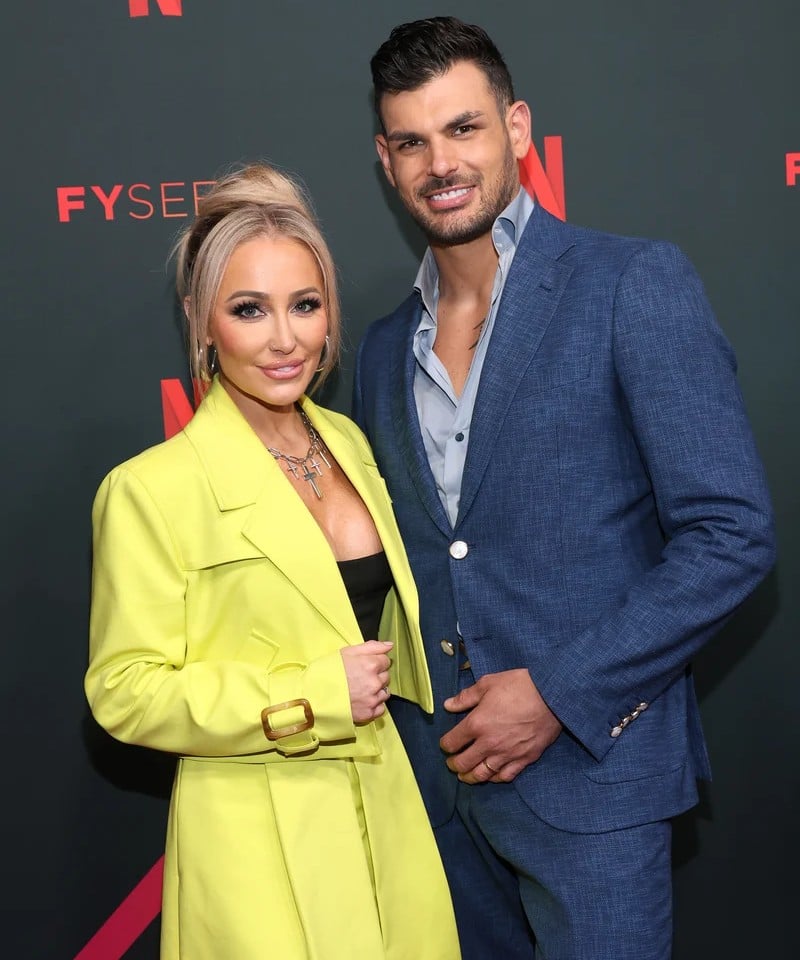
This article deals with pregnancy loss.
When Mary Bonnet fell pregnant at 15, she felt the eyes of everyone in her Indiana town on her.
At 16, the star of Netflix reality show Selling Sunset gave birth to Austin, now 27. At the time, it wasn't easy, recalled Bonnet in an interview with US magazine, telling the publication she was "shunned" by members of the community in which she grew up.
"Every place I went, I was a baby with a baby, and I was judged," she told the publication.
Watch: Selling Sunset Season 8 official trailer. Article continues after the video.
"It was really hurtful [but] because of that, I'm able to deal with the criticism we get on the show. I didn't know at the time that that was setting me up and thickening my skin."
But, she said, things "happen for a reason", and it turns out, that reason was even more powerful than she once thought — something she would discover almost two decades later.
The pain of miscarriage.
At 42, Bonnet felt the time was right for her and new husband, 30-year-old Romain Bonnet, to have a baby of their own. "I was finally in the right place — financially and emotionally — and with the right person to have another baby," she told Women's Health magazine.
When she fell pregnant, she thought it was meant to be. Despite having had a miscarriage previously, she didn't allow herself to consider the possibility that something might go wrong.
The couple found out Bonnet was pregnant after their Bali honeymoon and were "so excited". But at their nine week ultrasound, they received the news that their much-wanted pregnancy wasn't viable.
Bonnet recognised the look on the sonographer's face immediately, she said — she'd seen it before. But her heart broke for Romain, as this was his first experience of pregnancy.
